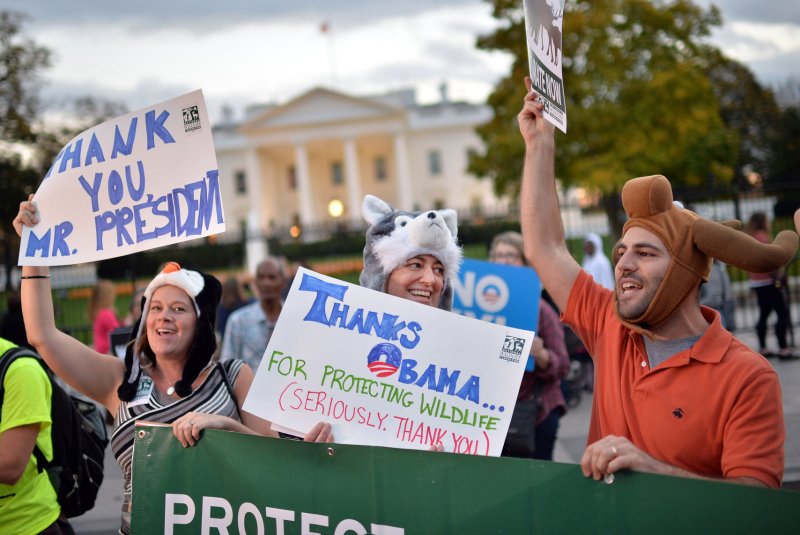TransCanada takes legal action in response to last year's U.S. federal decision to deny its permit to build the Keystone XL oil pipeline. Project had come to symbolize the debate over energy policies in North America. Photo by Kevin Dietsch/UPI |
License Photo
CALGARY, Alberta, Jan. 7 (UPI) -- TransCanada said it filed legal action against the United States for the rejection of the Keystone XL oil pipeline, arguing it was protecting its investments.
Oil company TransCanada announced it filed plans to issue a claim under the North American Free Trade Agreement in response to a U.S. federal decision to deny its permit to build the cross-border section of the Keystone XL oil pipeline. A lawsuit was also filed in a federal court in Houston, arguing U.S. President Barack Obama overstepped his authority in his decision to deny construction of the pipeline.
Standing beside Vice President Joe Biden and Secretary of State John Kerry, President Barack Obama in November said he rejected TransCanada's request largely on environmental grounds. The pipeline, submitted for approval more than seven years ago, "would not serve in the national interest of the United States," he said.
"TransCanada has been unjustly deprived of the value of its multibillion-dollar investment by the U.S. administration's action," the company said in an emailed statement. "Rather, the denial was a symbolic gesture based on speculation about the perceptions of the international community regarding the administration's leadership on climate change."
Keystone XL became a banner for U.S. Republican leaders and Conservatives in Canada frustrated with Obama's energy policies. Republican lawmakers vowed last year to make Keystone XL their top administrative priority.
The company has argued the pipeline would displace crude oil sent to terminals on the southern U.S. coast from Iraq, Saudi Arabia and Venezuela. For the week ending Jan. 1, Canadian crude oil exports to the United States were nearly triple that of Saudi Arabia, the No. 2 exporter to the United States.
By TransCanada's admission, the United States has never lost a NAFTA challenge. From the market perspective, the project was proposed in 2008, when crude oil prices were around $35 per barrel.
Shares in TransCanada were down 1.6 percent at the close of trading Wednesday and moving lower in pre-market activity.















